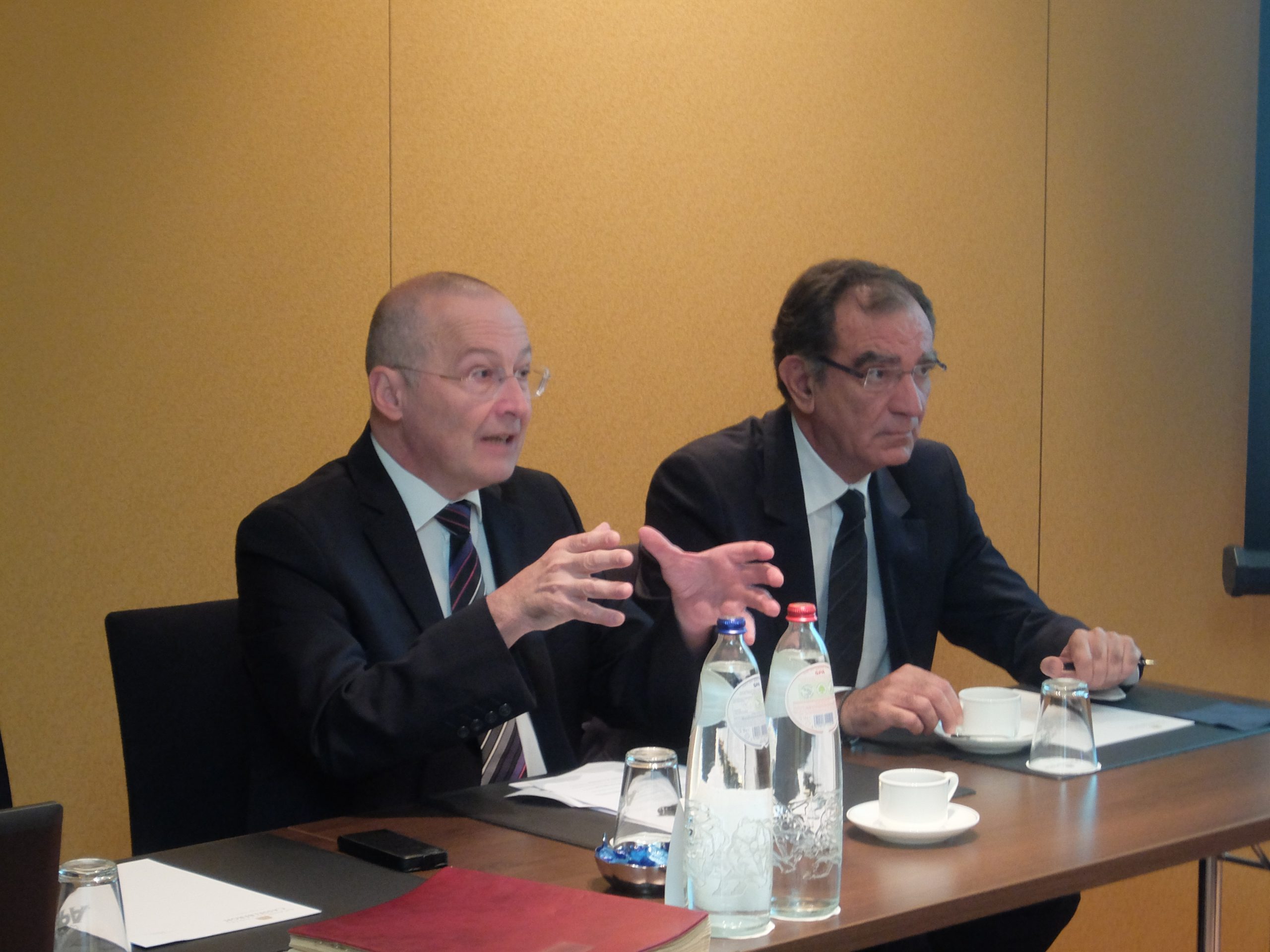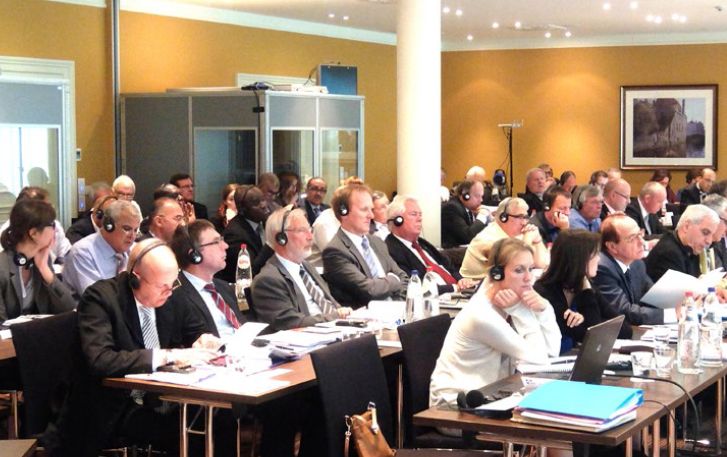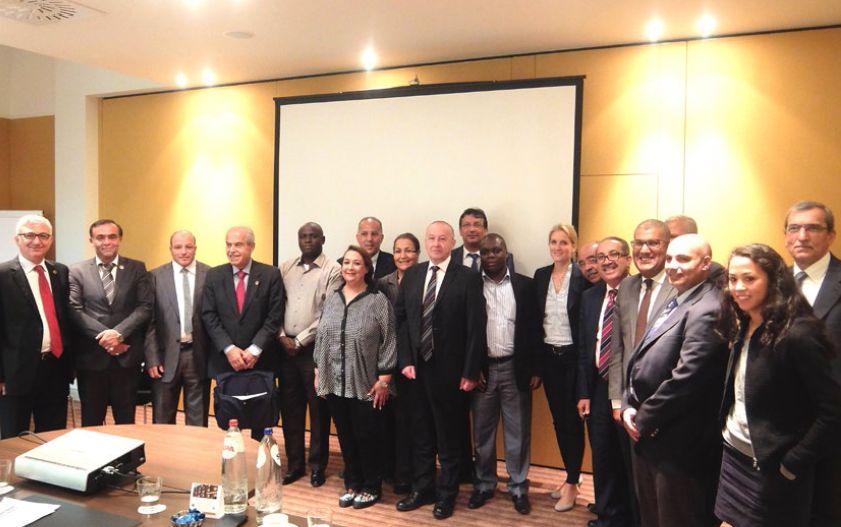In Bruges on 26 June 2014 the General Assembly of the International Association of Mutual Benefit Societies (AIM) considered the following question: should existing mutual societies be involved in developing mutual societies in other countries? The Education and Solidarity Network used the debate to pass on a number of key lessons drawn from its experiences in the field.
In Bruges on 26 June 2014 the General Assembly of the International Association of Mutual Benefit Societies (AIM) considered the following question: should existing mutual societies be involved in developing mutual societies in other countries? The Education and Solidarity Network used the debate to pass on a number of key lessons drawn from its experiences in the field.

Edmundo Martinho presented the report published by ISSA at the last World Social Security Forum in Doha in November 2013. In it, ISSA states that mutual societies are a tool for developing and extending social protection, especially in the health sector. They are its starting point and address some key difficulties such as a lack of information provided to people. Mutual societies therefore have a genuine role to play in the ongoing efforts to establish national social protection floors (SPF) and must unite to ensure that they are fully involved in these developments.
Thierry Weishaupt, Delegate General of the Education and Solidarity Network, illustrated these assertions with a concrete example: the set-up of a mutual society for teachers in Burkina Faso in partnership with two AIM members (MGEN and Solidaris), teachers’ unions (CSQ in Canada, OGBL/SEW in Luxembourg) and Pharmacists Without Borders in Luxembourg.
Three project phases are planned: firstly, cover for 40,000 primary education professionals and their families; secondly, the extension of this cover to 70,000 education-sector civil servants; and finally this mutual society will be linked in with the government’s Universal Health Insurance (AMU) project.

The Education and Solidarity Network used the debate to pass on a number of key lessons drawn from its experiences in the field:
- The international community provides strength. International partners provide national stakeholders with support through their involvement in projects. They supply technical support and credibility which reassures beneficiaries.
- Innovation through collaboration The mutual society is working on these projects with stakeholders from other sectors: NGOs, trade unions, ministries, international organisations etc. The combination of approaches, skills and opinions is beneficial.
- Politics and economics go hand-in-hand. When promoting the mutual society model and its values, opportunities for technical, economic and financial partnerships arise automatically, especially in Africa where a middle class is slowly emerging.
In response to these two presentations, the president of MUGEF-CI, which protects 600,000 people in the Ivory Coast urged AIM mutual societies to take action.





